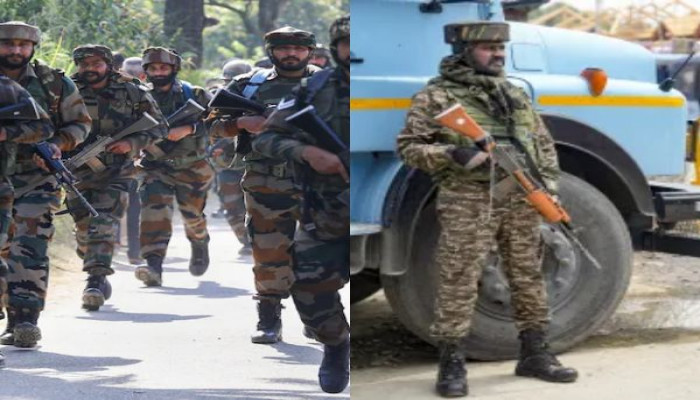MHA instructs states to launch civil defence drills
- In Reports
- 10:15 PM, May 05, 2025
- Myind Staff
Tensions have increased between India and Pakistan after the Pahalgam terror attack, and India has vowed a strong response to any threat. Pakistan has tested missiles and warned India against disrupting water flow. World powers have urged both nations to de-escalate. Both countries have stepped up military readiness. Some countries have pledged support to either side in case of war. The situation remains serious.
After the deadly terrorist attack in Pahalgam, the Ministry of Home Affairs (MHA) instructed several states to conduct civil defence mock drills on May 7 to improve emergency preparedness, according to central government sources who spoke to ET on Monday.
The Pahalgam attack killed 26 people in Jammu and Kashmir on April 22. Officials linked the attack to terrorist groups backed by Pakistan, pushing bilateral tensions to a breaking point.
In response, the Indian government ordered several steps to prepare civilians and infrastructure for possible threats.
Government sources said the drills would include measures like activation of air raid warning sirens, training civilians, including students, in civil defence and self-protection during hostile attacks, implementation of crash blackout protocols, early camouflage of important plants and installations and updating and rehearsing evacuation plans.
In the national capital, the MHA directed all Deputy Commissioners of Police (DCPs) to prepare detailed contingency plans. PTI reported that DCPs have started strategy meetings with senior officers to boost patrolling and tighten security at key locations across Delhi as part of the broader civil defence readiness push.
India and Pakistan have taken several countermeasures. Both countries recalled some diplomats and restricted the use of airspace and ports. India also suspended the Indus Waters Treaty (IWT).
Pakistan reportedly violated the ceasefire along the Line of Control in Jammu and Kashmir. It opened small arms fire for ten consecutive nights, worsening tensions between the two countries.
Islamabad responded by warning of a full-force retaliation if India stopped or diverted water flow after suspending the IWT.
On Monday, officials confirmed that all gates of the Salal Dam on the Chenab River had been closed, causing a noticeable drop in water levels in parts of Jammu and Kashmir’s Reasi district, as reported by ANI.
The Indus Waters Treaty allocates the Western Rivers—Indus, Jhelum, and Chenab—to Pakistan, and the Eastern Rivers—Ravi, Beas, and Sutlej—to India. However, the treaty permits India to use the Western Rivers for domestic, non-consumptive, agricultural, and hydroelectric purposes under strict regulations.
The Salal Dam, a run-of-the-river hydroelectric project on the Chenab River, falls within this framework.
Following several high-level meetings with top officials, Prime Minister Narendra Modi gave the Indian Armed Forces full freedom to choose the “mode, timing, and target” of their response to the Pahalgam attack—the deadliest since the 2019 Pulwama attack.
According to PTI, the Prime Minister said, “It is our national resolve to deal a crushing blow to terrorism.” He vowed to pursue terrorists and their sponsors to “the ends of the earth” and ensure punishment “beyond their imagination.”
Pakistan launched a second missile test in two days on Monday. The latest surface-to-surface missile had a range of 120 km. The military said it tested the weapon to validate operational readiness and evaluate its advanced navigation system.
Pakistan Prime Minister Shehbaz Sharif claimed the country’s defence remains “in strong hands.” On May 3, Pakistan tested the Abdali Weapon System, which has a range of 450 km. India reportedly viewed this as a “blatant provocation.”
India has also increased its military preparedness.
The Indian Navy’s newest warship, INS Surat, intercepted a low-flying target using its MRSAM system in the Arabian Sea. The Advanced Light Helicopter (ALH) fleet returned to operation after a brief technical grounding.
As military activities rise near the Line of Control, global powers including the US, EU, and China have called on both India and Pakistan to reduce tensions, particularly because both possess nuclear weapons.
In the event of war, China, Bangladesh, and Turkey have pledged support to Pakistan. Meanwhile, Russia, the UK, and Japan have announced their support for India.







Comments